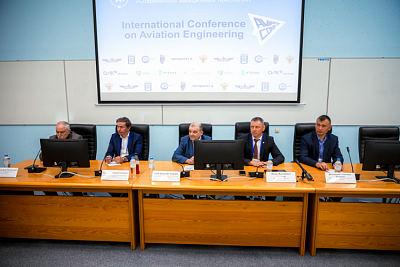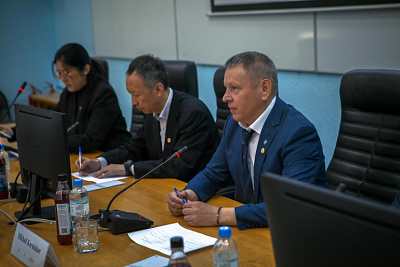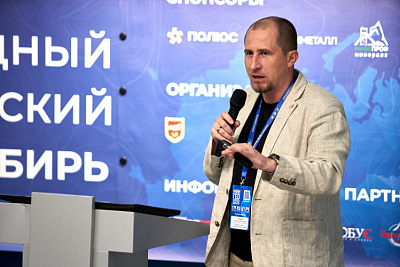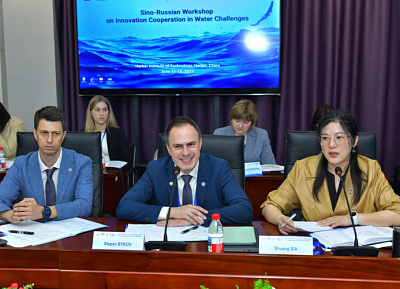INRTU is a participant of the "Priority 2030" program, presented the results of its work to the Council for Support of University Development Programs of the Ministry of Education and Science of Russia
As a reminder, INRTU is one of 106 Russian universities participating in the Priority 2030 Program (recipients of the basic grant) and the recipient of the special part of the grant for the "Sectoral and/or Territorial Leadership" track among 46 Russian universities.
"One of the important principles of the Priority 2030 program is to evaluate participants by the dynamics of their development. The members of the Council expect universities to constantly move forward. This, in turn, allows them to show the best results. Competitiveness in education, research and development is part of the mission of all universities. But it is especially important for the universities, which undertook the responsibility to become the drivers of the development of the economy of our country and separate regions," the Minister of the Ministry of Education and Science of the Russian Federation Valery Falkov emphasized.
Speaking to the members of the Council, the rector Mikhail Korniakov noted that in implementing the development program the university aims to transform the industries in the field of subsoil use, aircraft building, increasing the economic efficiency of the region and its sustainable development.
"In the new economic conditions, many industries are facing the issue of technological independence based on digital solutions. Responding to these challenges, INRTU, as part of the strategic project i.GeoDesign, is creating highly mobile technologies for accelerated field discovery at the request of mining companies, as well as testing junior geological business models. A key effect for the university has been the creation of the School of Early Career Geology, which is based on large-scale student involvement in research development programs and the execution of geological projects.
Taking into account the fact that by 2030 the output of civil aircraft is to be increased three-four times, INRTU, within the framework of the i.DIT project, is focusing on the development of technologies for manufacturing and strengthening of panels, skins, frame parts of Russian aircrafts. Researchers of Irkutsk Polytechnic Institute have achieved high results in precision of parts manufacturing and increase of their service life," said Mikhail Korniakov.
Rector Korniakov spoke in more detail about the development of the i.GeoDesign strategic project, which offers the industry new business models and technological innovations, allowing to reduce the cycle of geological prospecting works to one field season and reduce their cost by 1.5-3 times. Today the university in partnership with members of the consortium carries out geological prospecting projects all over Russia: from Kamchatka to the Kola Peninsula, and from Bodaibo to the Putorana Plateau (Taimyr).
Presenting the results of the i.DIT project Mikhail Kornyakov noted that a number of projects aimed at increasing productivity, accuracy, and life expectancy of aircraft parts have been implemented. The complex of automated equipment for shaping and straightening of critical parts was developed, it enables to increase productivity of shaping-forming processes by 2-3 times, accuracy of spatial form by 3-4 times, resource characteristics by 2-3 times. Work results were confirmed by Aviastar, an enterprise of PJSC Il, and demanded by Yakovlev Design Bureau and Tupolev Design Bureau with prospective implementation in production of MS-21 medium-range passenger airplane. The technology of tool manufacturing from polymer composite materials for press equipment was created and reverse-engineering of the foreign equipment parts was performed, which contributed to uninterrupted work of the enterprises in the conditions of import substitution.
"Priority 2030" is the largest state program to support universities in the history of Russia. It is implemented as part of the national project "Science and Universities" and is aimed at increasing Russia's competitiveness in education, science and technology.



